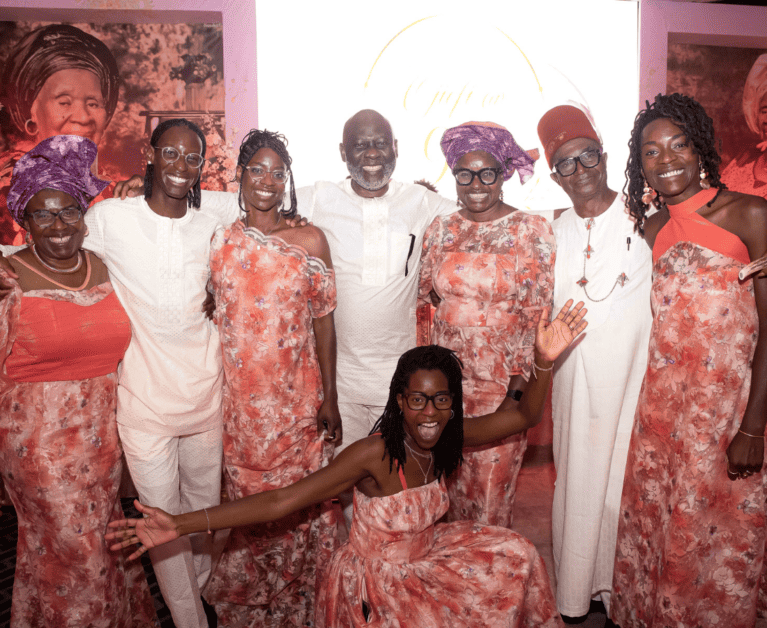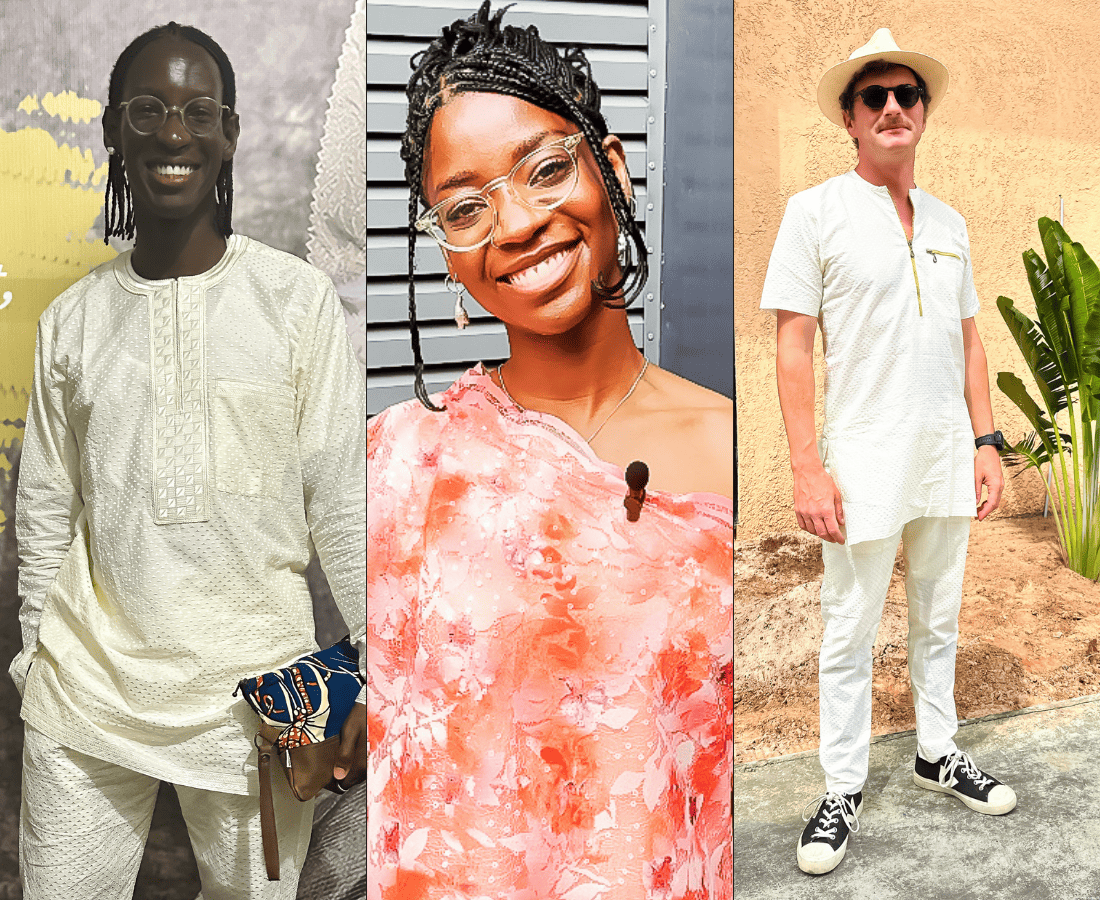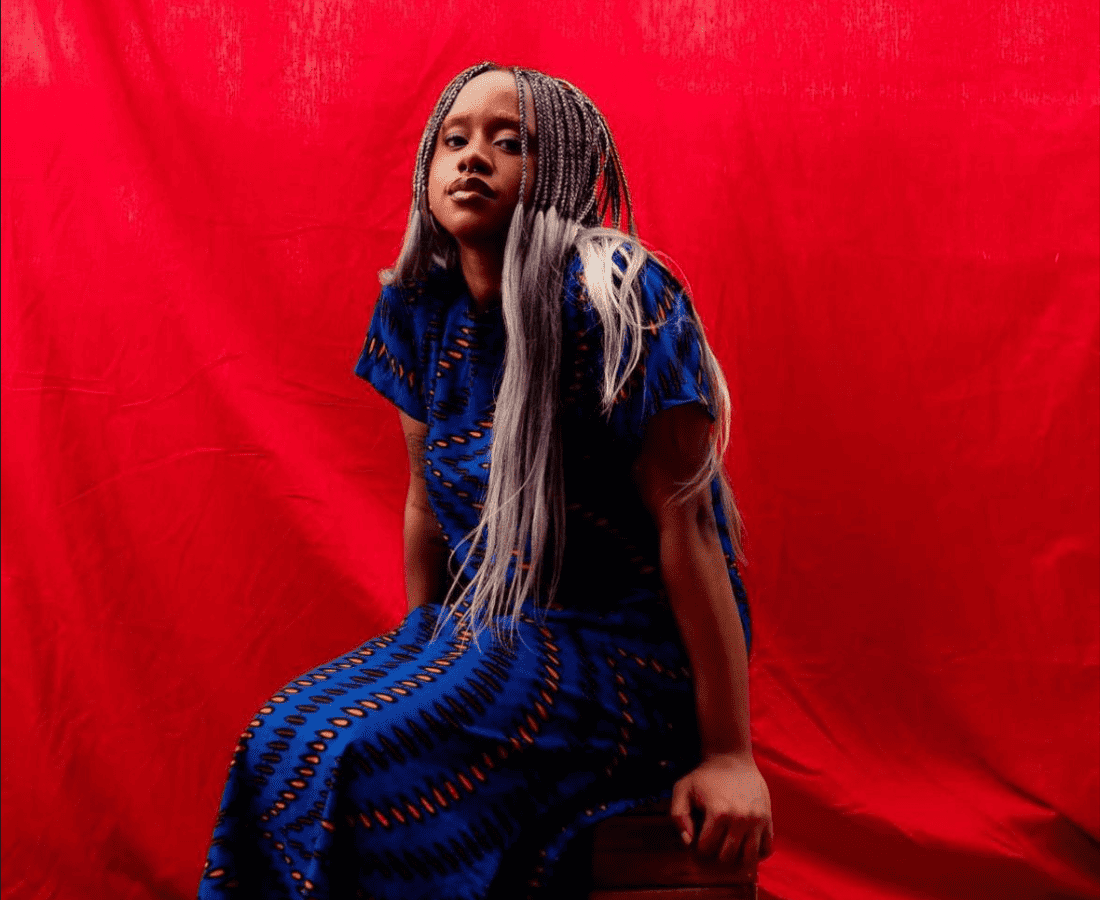Aso Ebi: Ify Ubby’s Discovery Of The Harmonious Blend of Tradition & Modernity in Nigerian Fashion

PUBLISHED October 16th, 2023 07:00 pm | UPDATED October 23rd, 2023 04:23 pm
Ify Ubby, the founder and designer behind OliveAnkara fashion label, first discussed the essence Aso Ebi in our recent Travel Guide To Lagos. Just like any other trip to the bustling streets of Nigeria, Ify’s recent trip home was filled with explorations, familial connections and not to forget the vibrant traditional Nigerian Fashion. Aso Ebi, which translates to “family cloth,” is woven into the fabric of Nigerian culture, prominently featured at gatherings, weddings, and even funerals. In modern times, women in Nigeria are increasingly finding creative ways to honour the tradition of Aso Ebi while incorporating fresh touches into their traditional attire.
In this article, Ify shares her personal observations as well as casual dialogues with family members and Nigerian locals, exploring the harmonious intersection of tradition and modernity in the realm of Aso Ebi.
Traditional Dressing with Aso Ebi
In Nigeria, both men and women celebrating any event wear matching outfits, with men opting for shirts and trousers of the same colour. While women don fabrics with the same prints for their outfits, including the Gele (headwraps), in a beautiful expression of unity within the family.

Ify’s Aunt Ogo shares how Igbo women adopt the Aso Ebi tradition, which plays a significant role in identifying their origin and showcasing their fashion preferences.
“A traditional Igbo woman usually wears a blouse and two wrapping cloths – usually a matching skirt and a gele. This clothing choice is a clear indicator of where she comes from. Unlike other ethnic groups who prefer Ankara fabric, Igbo women typically opt for lace materials. They also tend to skip the double wrappers and go for a style called ‘Buba and Iro’ (the literal translation is “the act of wrapping”). This unique style makes it easy to recognise an Igbo woman.”
To Nigerian women it’s not just about fashion; it’s about feeling empowered and showing your identity—letting people know who you are and where you’re from.
Modernising Aso Ebi: A Personal Touch
On her trip, it became evident to Ify that Aso Ebi is about celebrating individuality within a shared tradition. On her grandmother’s 90th birthday celebration, her family wore different silhouettes using the same fabric, creating unique designs and adding personal touches throughout.

Luca, Ify’s Italian brother-in-law, sported a Panama hat and stylish shoes, whilst Kosi, Ify’s cousin, merged traditional fabric with a contemporary silhouette. Even braids, a traditional hairstyle, can be modernised and made distinctively personal.
“I’ve always cherished the opportunity to showcase my unique style by making choices in how I wear Aso Ebi and how I accessorize it. I think it might sound trivial, but I’ve never been the biggest fan of being dressed exactly identically to someone else. Whether it’s for a party like this or past weddings I’ve attended, I’ve always leaned towards adding my personal touch. This is where I find my fun.” – Chubby, Ify’s cousin.
Evolution of Fashion: Tradition Meets Modernity
In this cultural exploration, Ify then delved into a vital question – Are we slowly losing our identity and culture? Does modifying traditional wear make them less meaningful?
According to Nosa, an art director, it’s important to pass tradition forward while navigating the present: “It’s about finding what the tradition means to me and making it work in a different world.” Whilst Kosi shared a unique perspective where she believed that traditions, at the end of the day, are about passing something along to the next generation, understanding that it’s a different generation, understanding that they will then pass it on again. It’s not meant to be static, to continue to live. And so to realise, tradition requires change for it to actually be relevant.

To Chubby, on the other hand, fashion is like a canvas where one can blend old traditions with new creativity. Something like mixing old recipes with new flavours. Just like in Nigeria, many cultures around the world have their unique styles and techniques, like Adire and Ankara. These are special ways of making clothes that have been passed down through generations. Today, fashion lets us pay tribute to these traditions by adding them to modern designs. It is especially prominent when designers from West Africa combine old and new ideas. They take traditional designs and give them a fresh twist. It’s like keeping the culture alive and exciting.
Nonetheless, amidst the changes, one aspect of Aso Ebi remains constant: the choice of fabric colours, which remain intricately linked to the nature of the celebration. Depending on the occasion, one can play with the depth of colours. For celebrations of life and joy, families may choose to infuse even more vibrancy into the palette. Conversely, for sombre events like a funeral, they might blend in white but introduce a splash of electric blue in the mix to inject a sense of vibrancy and remembrance.
Celebrating Aso Ebi’s Timeless Charm
In the ever-evolving landscape of fashion, Aso Ebi stands as a testament to the idea that tradition can be an endless source of inspiration, allowing Nigerians to honour their roots while embracing the future. It bridges the gap between generations, passing down knowledge, expertise, and traditional techniques related to fabric creation and clothing styles. It serves as a reminder that, even in the face of change, the heart of tradition beats with unwavering vibrancy and life.

However, the magic of fashion lies in its ability to blend tradition with innovation, allowing us to preserve cultural heritage while pushing creative boundaries. By daring to explore new shapes and materials within the framework of tradition, fashion ensures that our cultural traditions not only endure but continue to evolve and flourish in the contemporary world.
Before we leave you to it, here are some of Chubby’s (and many young Nigerians’ like Ify’s) hopes for the future of fashion: “I envision a dynamic interplay between tradition and modernity. Preserving time-honoured techniques is vital, as they underpin the very essence of our craft. However, sustaining these traditions can be financially challenging. We must find ways to make them viable for both producers and consumers. Nevertheless, it’s a gradual process. Even if not everyone succeeds in their endeavours, the fact that people are still attempting to uphold these traditions and conducting research is a testament to their resilience and determination. This persistence, despite the challenges, is a promising sign for the future of traditional craftsmanship in fashion.”
This article is brought to you by Ify Ubby, & OliveAnkara fashion label.
All photos courtesy of Ify Ubby, unless otherwise stated.

